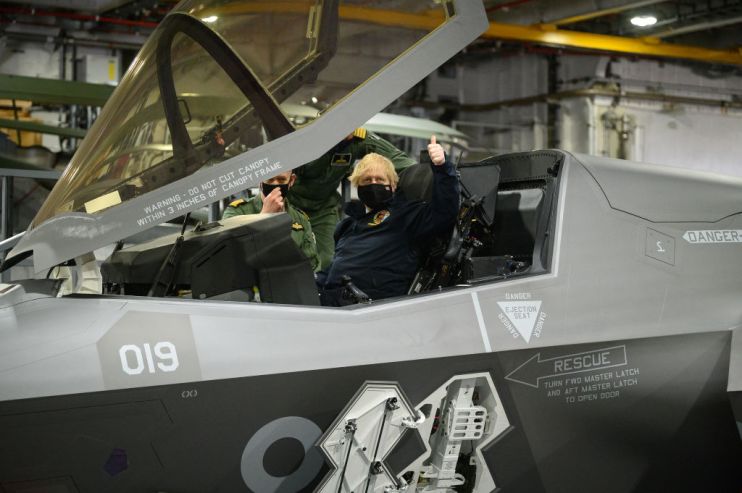Britain’s defence procurement strategy wastes billions of pounds and puts lives at risk

Ministry of Defence procurement projects running over budget or behind schedule rarely makes its way onto the front pages. It happens so often, you have to wonder if expensive delays are written into the small print by MoD’s commercial arm, Defence Equipment and Support. The procurement of the Ajax infantry fighting vehicle is just the latest to come to light.
Ajax is the name of a family of military vehicles made by General Dynamics UK, who won a competition to supply the British Army’s Future Rapid Effect System (FRES) category in 2010. More than 10 different variants were anticipated, and there was an initial payment of £500 million—the MoD rarely plays with small numbers—for a Demonstration Phase contract.
To a layman, this is all ancient history. In 2010, we were engaged in two campaigns in Iraq and Afghanistan and our fighting capacity was a well-worn and tired arsenal. Everything was justified as an urgent operational requirement. With British soldiers in harm’s way, the Treasury’s purse strings were not so much loosened as pulled off entirely.
Now, 11 years on, Ajax was set to be delivered in 2017 and deployed to front-line units by last summer. In fact, 14 vehicles have been delivered and are being tested, but leaked reports suggest a myriad of problems. Ajax suffers from such bad vibration that the soldiers inside are suffering from nausea, swollen joints and tinnitus. They have to wear noise-cancelling earphones and are restricted to no more than 105 minutes inside at a time.
The vehicles have been limited to 20 mph, only a whisker faster than the contentious e-scooters set to be deployed onto London’s streets. The turrets are unable to fire while the vehicle is moving, and it cannot reverse over obstacles higher than 20 cm.
The MoD signed a £3.5bn contract with General Dynamics in 2014 for some 589 vehicles, while the whole programme is slated to cost £5.5 billion. This is money which has been committed or paid, and the MoD currently has, in operational terms, nothing to show for it. Not a single, combat-ready vehicle.
The House of Commons Defence Committee, chaired by Tobias Ellwood, a former regular soldier, examined the Army’s armoured vehicle capability in a report published in March. Ominously, it was entitled Obsolescent and outgunned. It described the situation as “deplorable” and claimed to have uncovered a “woeful story of bureaucratic procrastination, military indecision, financial mismanagement and general ineptitude”.
These are harsh words, even for a committee with a track record of ruthless honesty. And these are people who know the territory: Ellwood was a defence minister under Theresa May, and four other committee members have served in the MoD. They concluded that the Army was “disgracefully” proposing to send its troops into battle “in a combination of obsolescent or even obsolete armoured vehicles, most of them at least 30 years old or more”. The reputational danger was implicit but obvious. If the lions were not led but equipped by donkeys, there would be no doubt as to where the blame lay.
Defence procurement in the UK is a litany of budgetary overruns, wasted money and hopeless schedules. The RAF was left with a major capability gap and wasted between £3.5bn and £4bn after the maritime patrol aircraft, Nimrod MRA4 was scrapped. The aircraft never saw service. The money was spent by MoD with no operational benefit at all. The upgrade programme for the infantry fighting vehicle, the Warrior cost nearly £500million but was cancelled in the recent Integrated Review.
This cannot continue. The system is broken and it is costing not only billions of pounds of taxpayers’ money but also lives. In 2007, the government merged the Defence Procurement Agency and the Defence Logistics Organisation into a single body, Defence Equipment and Support. The workforce is split between civilians and military roughly 80:20.
The head of DE&S must be the figure in charge of procurement and have clear accountability. Currently, no one takes the blame. The senior leadership of the MoD are spending billions of pounds, and their judgement must be sharpened by the fact that they will be held to account for failures.
Ben Wallace, the defence secretary, must take the Integrated Review as Year Zero for procurement. Shake up DE&S, change the culture, make it more accountable, and get hard-headed negotiators to go toe-to-toe with the defence industry. Bomber Harris said all the cities of Germany weren’t worth the bones of a British grenadier. The question is, Ben: what are they worth?